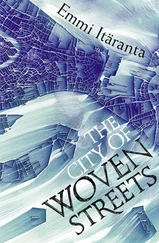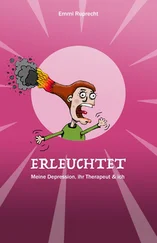More than once posters painted on canvas caught my eye on the roadside. They promised rewards to anyone reporting water criminals. The baker’s son, who was a year younger than me, was standing in front of one of the posters. I remembered him from the village school. He had been one of the swiftest sprinters in his class, was always impeccably dressed and got mediocre marks. He was wearing a blue uniform and painting a new, raised reward sum on top of the poster. A short distance away was another poster, its wet paint still shining faintly. If he was on military payroll, I thought, that explained how the baker’s family could still afford to swap bread for fans.
Back at home I did something I had been avoiding for weeks.
I opened a wooden box I kept on the bookshelf in my room, and took out the message-pod my mother had sent. I had not used it before. In spite of my mother’s request, I had written to her a few times on the old message-pod. I had not mentioned a word about the other, hacked pod, but I had wanted her to know that I was in good health despite the war and the circumstances in the village. I had not received a reply, so I didn’t know if my messages had made it to her. Yet now I had to let her know about my decision.
I placed my finger on the screen and waited as the display switched on and Aino Vanamo’s name appeared. I wrote in the field, I’ve decided to stay in the village until Moonfeast. I will leave for Xinjing the day after the feast and will let you know the date of my arrival. Aino.
I sent the message, switched off the pod and put it back in the wooden box. I knew the lie I had just told was not the answer she had hoped for.
Early in the following afternoon a young woman dressed in the blue of the army kitchen stopped at my stall.
‘Noria Kaitio?’ she asked.
I bowed. The woman handed me a sealed letter.
‘It’s from Major Bolin,’ she said. ‘He said you’d know what was needed in exchange.’
I pulled a sealed mail pouch containing the money from my bag.
‘He also sent a message,’ she said, leaned closer and lowered her voice. ‘Sunday before midnight.’
‘Sunday before midnight,’ I repeated. Today was Thursday. The woman nodded, turned on her heels and walked away. When she had gone, I walked behind my stall and looked around to make sure no one was paying attention to me. An old lady was dozing against the wall under the awning of the stall next to me; the two children I had seen the day before were drawing in the sand. I broke the seal and pulled the contents of the envelope out. A map was drawn on a piece of paper and a place outside the village, on the outskirts of the Dead Forest, was marked with a cross.
The messenger had told me when, but now I also knew where.
On Sunday I started walking towards the Dead Forest well before midnight, because the journey was long. The night-glow of the sun floated on the water-coloured sky, but the shadowy chill of the ground seeped into me, climbing my bones and washing me shivery inside. I didn’t know what to expect. I had no choice but to trust Bolin.
The village was quiet. I took the long route across the side of the fell because I was worried I might run into soldiers. A smoke-dark haze of insects hovered in the air like clusters of abandoned shadows. They would fall apart for a short while, scatter around me when I walked through them, and clench again into swarming statues dimming the landscape like ancient spirits risen from under stones or buried memories made visible. Stones shuffled under the soles of my walking shoes, grinding faintly against each other.
The Dead Forest had once been called Mosswood, a name that recalled deep-green leaves moving in the wind and verdancy so lush and moist that you could feel it on your skin. Even longer ago, when words for such greenness were not needed yet, because it was a given in these lands, the forest had not had a name at all, so my father had told me. Now its bare trunks and branches twisted towards the sky sand-dry and colourless like a cobweb woven across the landscape, or the empty husks of insects caught in it. Life no longer circulated in them, their veins were brittled and broken, their skins frozen into letters of a forgotten language, near-incomprehensible marks of what had once been. Some trunks had wrung themselves into the ground, where they lay speechless, still.
I followed the path drawn on the map, until I reached the place marked with a cross. I approached it cautiously, unsure of what was waiting for me. I listened.
The only sounds were the slow sinking of the forest, the wind clutching leafless twigs and the faint creaking of the trunks turned towards the earth.
It took me a while to find what I was looking for. The helicarriage was hidden with skill. I would not have seen it, if I had not known where to look. It had been driven into a shallow hole and covered with an earth-coloured, frayed seagrass rug and dry branches. I was content to notice that the road along which it had apparently been brought started some distance away. It meant the carriage was good enough for a more difficult terrain. I lifted the seagrass cover and examined the carriage. I knew little about helicarriages, but this one looked newer and seemed to be in better condition than Jukara’s. There were scratches on the sides and the tyres were slightly worn, but the solar panels and seats were unbroken. The start key was in the lock. I pulled the rug back over the carriage. I walked along a narrow path until it joined a slightly wider dirt road, which wound towards the village. The road was closed with a half-rotten beam and large boulders. Seen from the other direction, it looked like it had not been used in years. There were no tracks: Bolin had kept his promise about the carriage being difficult to trace. Yet someone knew it was here, so the sooner I could drive it away, the better.
I had given a lot of thought to where to keep the helicarriage. The easiest would have been to hide it in the tea master’s house, but I didn’t want to risk a water patrol discovering it loaded with food and water, obviously equipped for a longer journey. Therefore I had decided to hide it near the plastic grave under an old bridge. The grave was spilling over on the edges with old junk people had left around it, and the mouth of the space under the bridge was nearly blocked by earth and rubbish. From a distance it was impossible to know there was a hollow space inside. Sanja and I had found the place a few years earlier. If someone happened to be passing near the bridge and saw the helicarriage, the discovery would be impossible to connect with anyone. The worst that could happen would be losing the carriage. Transporting food and water to it would be more difficult, but if I took small amounts every day, I could do it.
Once I’d found the gap which had been used to bring the carriage into the forest – it was possible to move the beam, and I managed to pry one of the boulders to the side with a dry branch – I walked back to the carriage. I’d have to wait for the morning, when the nightly curfew would expire, and use the remotest roads possible. The route to the hiding place was difficult, but this meant the risk of being spotted was smaller.
I sat on the crackling dry ground and listened to the stillest essence of the night closing in around me.
I first noticed that the hacked message-pod was missing when I returned to the house in the morning. I opened the wooden box to check if my mother had replied to me, and I saw immediately that the message-pod was not where I had left it, on top of the things I had collected from the plastic grave. The weight of my heart fell into my stomach. I tried to remember when I had last taken the message-pod out and switched it on. The morning before? Or the day before that? I wasn’t sure. Several villagers had come to the house to get water in the past few days. The adults didn’t usually come any further than the kitchen, but the women had brought their children, who had been wandering around in the rooms as usual. My first thought was that one of them had gone into my room, found my wooden box and taken the message-pod without asking for permission. In theory it was possible. I tried to remember if I could have left the pod somewhere else. I searched in the kitchen. I searched in the living room. I looked behind the bookshelves and under the bed and between the piles of books and in the pockets of my garments, with no success.
Читать дальше
Конец ознакомительного отрывка
Купить книгу












